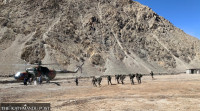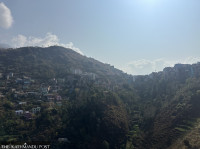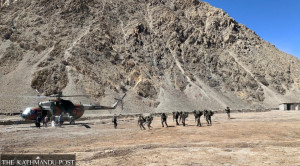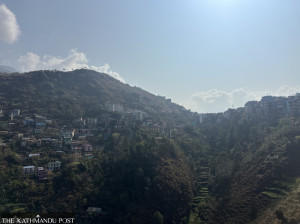Karnali Province
Locals in Jumla risk lives to collect medicinal herbs
Despite the risks, locals go up to the highlands to collect herbs because it a reliable, lucrative business.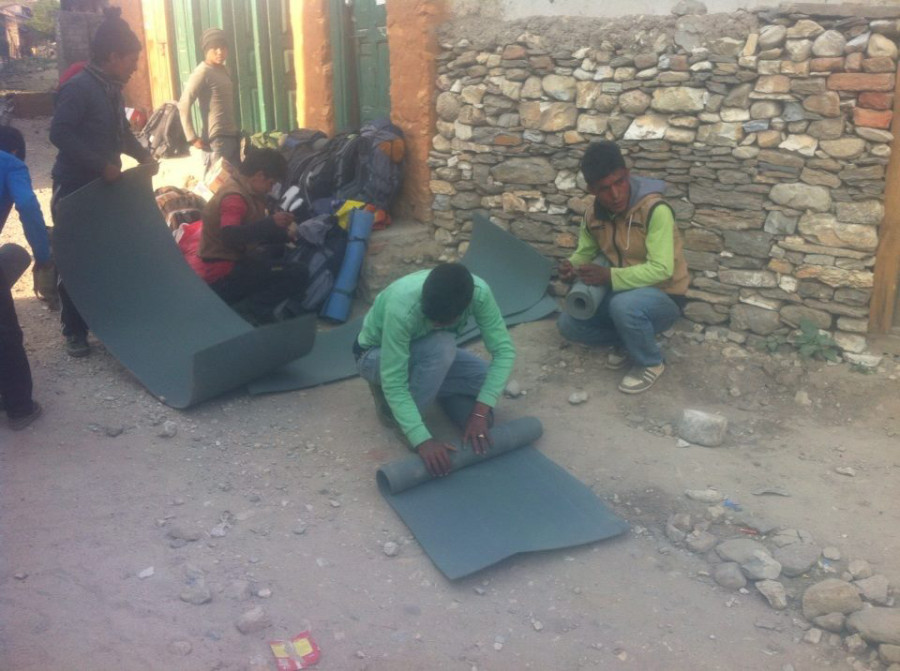
LP Devkota
Every year, Rajya Bohara, a local of Patarasi Rural Municipality Ward No. 3, spends around six months in the highlands. Around May-end, he goes to the highlands to pick Yarshagumba, the world’s most expensive herb. During winter, he goes to the highlands to collect Setak Chini (Moringa Oleifera) and Bhutle among other medicinal herbs—both fetch him good money.
Bohara feeds his family of eight by selling the herbs he collects. “It’s not an easy life. It is very difficult to search for medicinal herbs in the highlands. But I have no other option; I have a family that depends on me,” he said.
Bohara is not the only person who makes a living this way. Every year, hundreds of locals of Patarasi, Guthichaur, Tila, Hima, Sinja, Kanakasundari and Tatopani go to the highlands to collect medicinal herbs. But herb collection is dangerous business. Only a few weeks ago, a herb collector died in the highlands after getting trapped in a massive snowfall. Another collector is reported to be still missing.
Lal Bahadur Dhami, deputy superintendent of police, said because some herb collectors live up in the highlands for two to three months, they cannot claim the missing person is dead. “Unless we locate the missing person’s body, we cannot claim he is dead,” said Dhami.
Tulu Bohara, a local of Tila Rural Municipality, said she and other 14 herb collectors, who went to the highlands to collect Setak Chini around three weeks ago, stayed inside a cave for three days because of a massive snowfall. “We almost died then. We know there are huge risks to this job, but we are compelled to go to the highlands because we have no other source of income,” she shares.
Despite the risks, herbs collection is a reliable source of income for Jumla folks. Hira Budha, a local of Patarasi Rural Municipality, said that he makes around Rs 500,000 by selling medicinal herbs.
According to the Division Forest Office in Jumla, more than 70 types of medicinal herbs are found in various parts of highlands in the district. Among them, the government has permitted the collection of 50 to 55 medicinal herbs.
Dinesh Khatri, chief at the office, said the office has allowed harvesting of 27,300kg Setak Chini, 35,000kg of Dhupi and 31,000kg of Padamchaal this year. “In the last fiscal year, the office had generated Rs 6.8 million revenue issuing permission letters (granted to the herb collectors) and through medicinal herbs export,” said Khatri.
Lakshiman Bohara, chairman of Patarasi Rural Municipality, said every year around 13,000 locals go to the highlands to harvest medicinal herbs from Patarasi alone. He said, “Out of 3,200 households in the rural municipality, 80 percent are involved in medicinal herbs business.”
With the onset of the herbs picking season, hordes of herbs collectors have already rushed to the highlands. Bishnu Budha, chairman of Tila Rural Municipality, said around 12,000 locals have gone to the highlands to collect medicinal herbs this year. People from Dolpa, Mugu, and Jajarkot districts also come to Jumla to collect herbs.




 9.7°C Kathmandu
9.7°C Kathmandu
